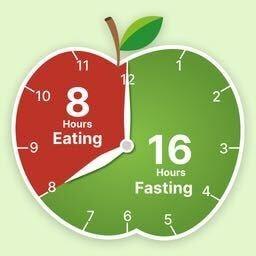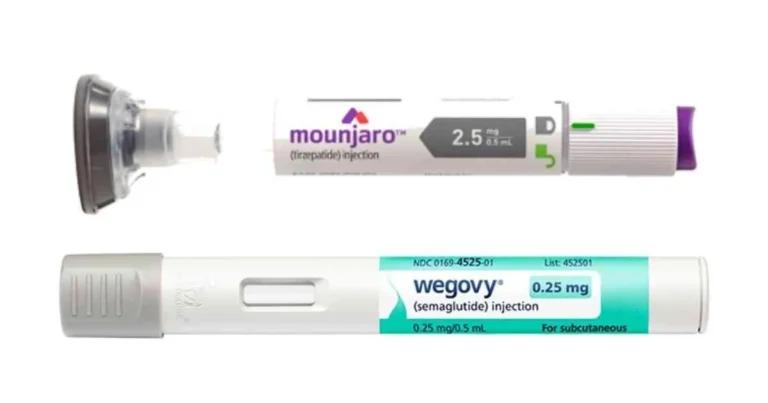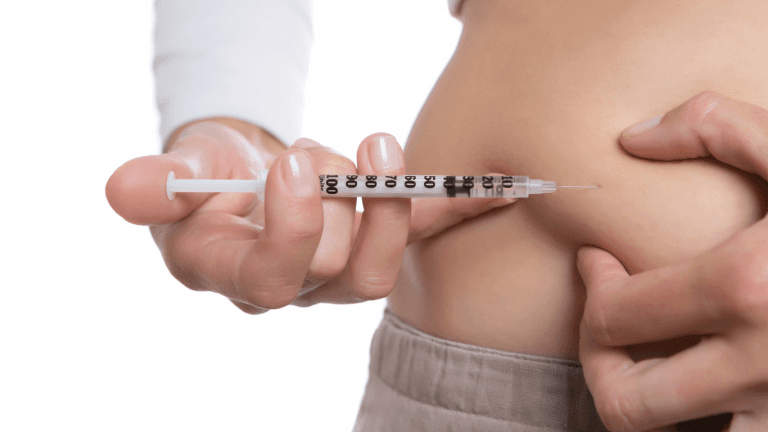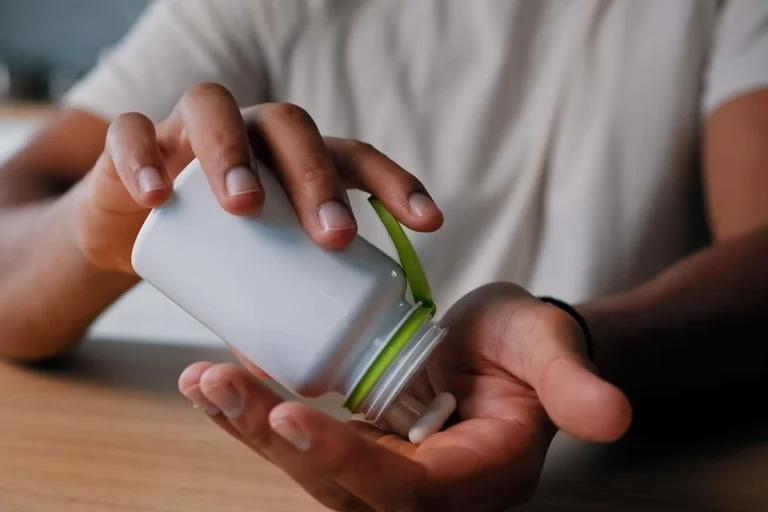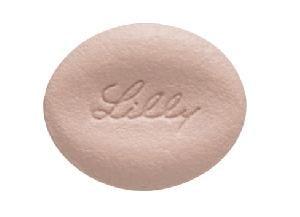To lock in the benefits of intermittent fasting, it’s important to reintroduce food carefully. Here’s a quick overview of the best foods to break your fast:
- Collagen-rich protein: Bone broth, chicken, fish, plant-based protein, eggs
- Nutrient-dense vegetables: Cooked leafy greens, broccoli, cauliflower
- Healthy fats: Avocados, olive oil, nuts, seeds
- Hydrating fruits: Berries, watermelon
- Gentle whole grains: Oats, quinoa
- Fermented foods: Kefir, kimchi, yogurt, miso, sauerkraut, tempeh
What Should You Eat to Break an Intermittent Fast and Why It Matters
How you break a fast depends on how long you’ve gone without food. But before diving into meal plans, it helps to understand what your body goes through during fasting, including the metabolic switch, a process where your body shifts from burning glucose to burning fat for energy, leading to the production of ketones.

Image of an empty plate that shows what food should be used to break an intermittent fast properly
During fasting, calorie restriction promotes autophagy, a cellular repair process that helps reduce inflammation and may slow aging, though excessive autophagy should be avoided.
When you resume eating, your food choices can impact your blood sugar regulation and insulin response, as certain foods can provoke insulin secretion and affect the benefits of fasting.
Choosing what to eat after fasting is important. A balanced diet during non-fasting periods supports overall health, and different diets, such as those higher in healthy fats or low-calorie foods, can influence your fasting results.
Introduction to Intermittent Fasting
Intermittent fasting is an eating pattern that cycles between periods of eating and fasting, rather than focusing on what foods to eat. This approach has gained popularity for its potential health benefits, including weight loss, improved blood sugar regulation, and reduced inflammation. During the fasting period, your body shifts from using glucose to burning fat for energy, which can help with fat loss and support overall health. When it’s time for eating, it’s important to choose nutrient-dense foods that are gentle on your digestive system. Opt for whole grains, lean protein, and healthy fats to help stabilize blood sugar and provide essential nutrients. By focusing on these foods, you can maximize the health benefits of intermittent fasting and support your body’s natural processes.
Understanding Fasting Periods
Fasting periods are a core component of intermittent fasting, giving your body time to rest, repair, and reset. During these stretches without food, your body can improve insulin sensitivity and reduce inflammation, both of which are linked to better overall health. Staying hydrated is crucial; drink plenty of water, black coffee, or unsweetened tea to support your body’s needs. Some people find that sipping diluted apple cider vinegar or bone broth during fasting periods helps curb hunger and provides additional nutrients. When it’s time to break your fast, start with small portions of easily digestible foods like cooked vegetables or fermented foods. This gentle approach helps your digestive system adjust and sets the stage for a healthy eating period.
The most popular intermittent fasting period is the 16:8 method, which involves a 16-hour fasting window and an 8-hour eating window. So you would break your fast at midday and start your fast at 8 pm.
What Happens to Your Body During a Fast?
During intermittent fasting, your body undergoes key changes:
- Ketosis: After 12 hours, your body shifts from burning glucose to using ketones from fat for energy. This occurs in the fasted state, promoting fat loss and reducing oxidative stress.
- Autophagy: Around 24–48 hours into fasting, cells begin to repair and remove damaged components, similar to detoxification.
- Digestive Rest: Fasting gives your digestive system a break, which helps rebalance gut bacteria (altering the composition of your human gut microbiome and increasing taxonomic diversity) also means your stomach needs time to adjust when eating resumes. It’s important to be mindful of the empty stomach and choose gentle, nutrient-dense foods when you start eating again.
Is It Safe to Eat a Big Meal After Fasting?
You should avoid eating a big meal immediately after a long fast. If you are fasting for 16 hours or less, you can normally break your fast with normal food. Generally, however, it is important to be aware that after digestive rest, your body isn’t ready for large meals. Consuming any significant calories can technically break a fast, depending on the fasting protocol you follow.
Overeating right after fasting can lead to bloating, nausea, or even damage your gut microbiome. Start with small, easy-to-digest meals to avoid spiking blood sugar or insulin levels, which can trigger hunger and overeating.
Foods to Avoid When Breaking a Fast
Skip anything that spikes glucose or stresses digestion, including:
- Refined carbs (white bread, crackers, sugary cereals)
- Sugary foods and drinks (these can contribute to weight gain and high cholesterol over time)
- Processed grains (these can also lead to weight gain and high cholesterol)
- High-fiber raw vegetables (initially)
The Ideal First Meal After Fasting
Focus on a small, balanced plate with:
- Protein: Replenish muscles and collagen with bone broth, chicken, fish, or eggs.
- Vitamins & minerals: Choose cooked vegetables like spinach, kale, broccoli, and bell peppers for easier digestion, essential vitamins, and electrolyte support.
- Healthy fats: Add avocado, olive oil, nuts, seeds, coconut oil, or MCT oil to stabilize blood sugar, improve satiety, support energy, and help suppress appetite.
- Hydrating fruit: Berries and watermelon are ideal low-sugar options. Coconut water is a gentle, electrolyte-rich beverage for rehydration.
- Whole grains: Oats or quinoa offer fiber, essential vitamins, and nutrients without overloading the gut.
- Fermented foods: Include kefir, yogurt, or miso to support digestion.
Berries also support satiety and play a role in weight management and aid weight loss.
Choosing low-calorie foods and beverages can help support fasting benefits. Coffee and tea are permissible low-calorie beverages during fasting and when breaking a fast. Remember to stay hydrated with water, coconut water, or other suitable beverages.
Avoid raw vegetables initially, their cellulose content can be hard to digest right after a fast.
What to Eat Based on Fast Duration
After 16 Hours – Break your fast with a smoothie containing yogurt, oats, papaya, and kale. Focus on protein, minerals, and healthy fats.
After 24 Hours – Start with bone broth or a light vegetable soup. Gradually add protein, cooked veggies, and healthy fats to rehydrate and restore nutrients.
After 3 Days (72 Hours) – This is considered an extended fast. Consult your doctor. To avoid refeeding syndrome:
- Start with small meals (soups, smoothies, broths)
- Slowly reintroduce calories over several days. Remember, any calories break your fast at this stage, so reintroduce them carefully
- Avoid processed foods and sugar for at least six days
After 7 Days or Longer – Medical supervision is a must. Reintroduce food using the same method as the 3-day extended fast:
- Begin with liquids and soft foods
- Gradually increase calories and complexity over time, as each calories break should be managed with caution
- Consider multivitamins and probiotics (with your doctor’s approval)
After 21 Days – Studies show extended fasts can be done safely under expert supervision. Participants successfully transitioned back to food with a vegetarian, whole-food plan over several days, starting with 200-250 calories and increasing slowly.
Health Benefits – Intermittent fasting may help reduce the risk of chronic diseases such as heart disease, diabetes, and inflammation by supporting metabolic health and cellular repair.
The Fasting Window
The fasting window refers to the time frame when you abstain from eating and avoid caloric beverages. Depending on your intermittent fasting schedule, this window can last anywhere from 12 hours to several days. During the fasting window, it’s important to avoid any foods or drinks that contain calories, such as refined carbohydrates, sugary beverages, or unhealthy fats. Instead, focus on staying hydrated with water, black coffee, or unsweetened tea to support your body and overall health. When you’re ready to break your fast, choose nutrient-dense foods that combine healthy fats, lean protein, and complex carbohydrates, such as whole grains, leafy greens, and other whole foods. This approach helps replenish nutrients and supports a smooth transition back into your eating window.
Heart Health and Fasting
Intermittent fasting can be a powerful tool for supporting heart health. Research shows that fasting may help regulate blood sugar, lower inflammation, and reduce blood pressure, all important factors for a healthy heart. To get the most heart health benefits from your fasting routine, focus on eating whole, nutrient-dense foods during your eating periods. Lean protein, whole grains, and healthy fats should be the foundation of your meals. When breaking a fast, avoid refined carbohydrates, sugary drinks, and unhealthy fats, as these can undermine your progress. Instead, opt for gentler foods like cooked vegetables, fermented foods, and lean protein to nourish your body and protect your heart. By making mindful choices, you can use intermittent fasting to support both your overall health and your cardiovascular well-being.
FAQs
Can I eat a banana after fasting? Yes. Bananas help restore lost electrolytes like potassium and magnesium.
Can I eat bread after fasting? Avoid it. Even whole wheat bread can spike insulin and trigger a strong insulin response, increasing hunger. Stick to gentler carbs like oats or quinoa.
Can I eat chicken after fasting? Absolutely. Chicken provides lean, collagen-rich protein that’s ideal post-fast. Choosing lean proteins like chicken also supports weight management after fasting.
What should I do after a long fast? Replenish electrolytes and start with broths, smoothies, or lightly cooked vegetables. Stay hydrated by drinking water or other non-caloric fluids, and consider coconut water for gentle rehydration and electrolyte replenishment. Avoid heavy or processed foods for several days.
Final thoughts
After fasting, your first meal should be small, balanced, and gentle on your digestive system. Prioritize collagen-rich proteins, cooked vegetables, healthy fats, and hydrating fruits. Longer fasts require a slower reintroduction to food and, ideally, medical guidance. Done right, breaking a fast supports your health and amplifies the benefits of fasting.
Medical Disclaimer
NowPatient has taken all reasonable steps to ensure that all material is factually accurate, complete, and current. However, the knowledge and experience of a qualified healthcare professional should always be sought after instead of using the information on this page. Before taking any drug, you should always speak to your doctor or another qualified healthcare provider.
The information provided here about medications is subject to change and is not meant to include all uses, precautions, warnings, directions, drug interactions, allergic reactions, or negative effects. The absence of warnings or other information for a particular medication does not imply that the medication or medication combination is appropriate for all patients or for all possible purposes.






